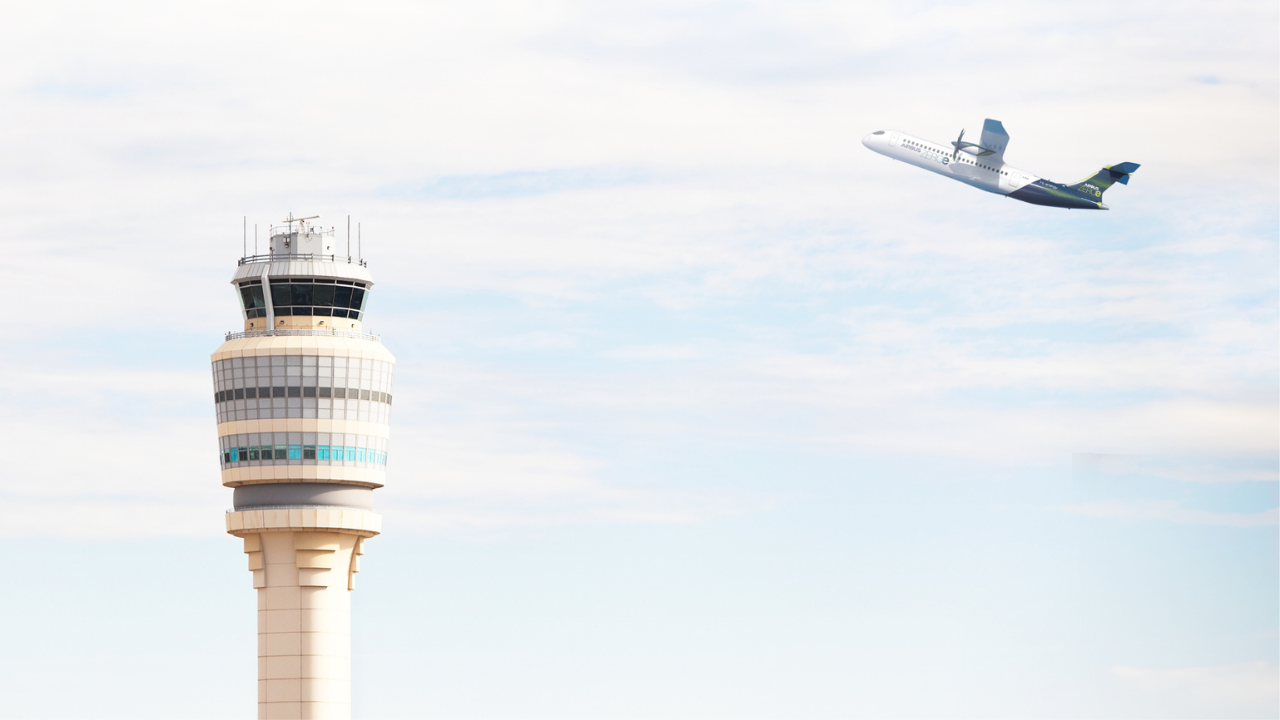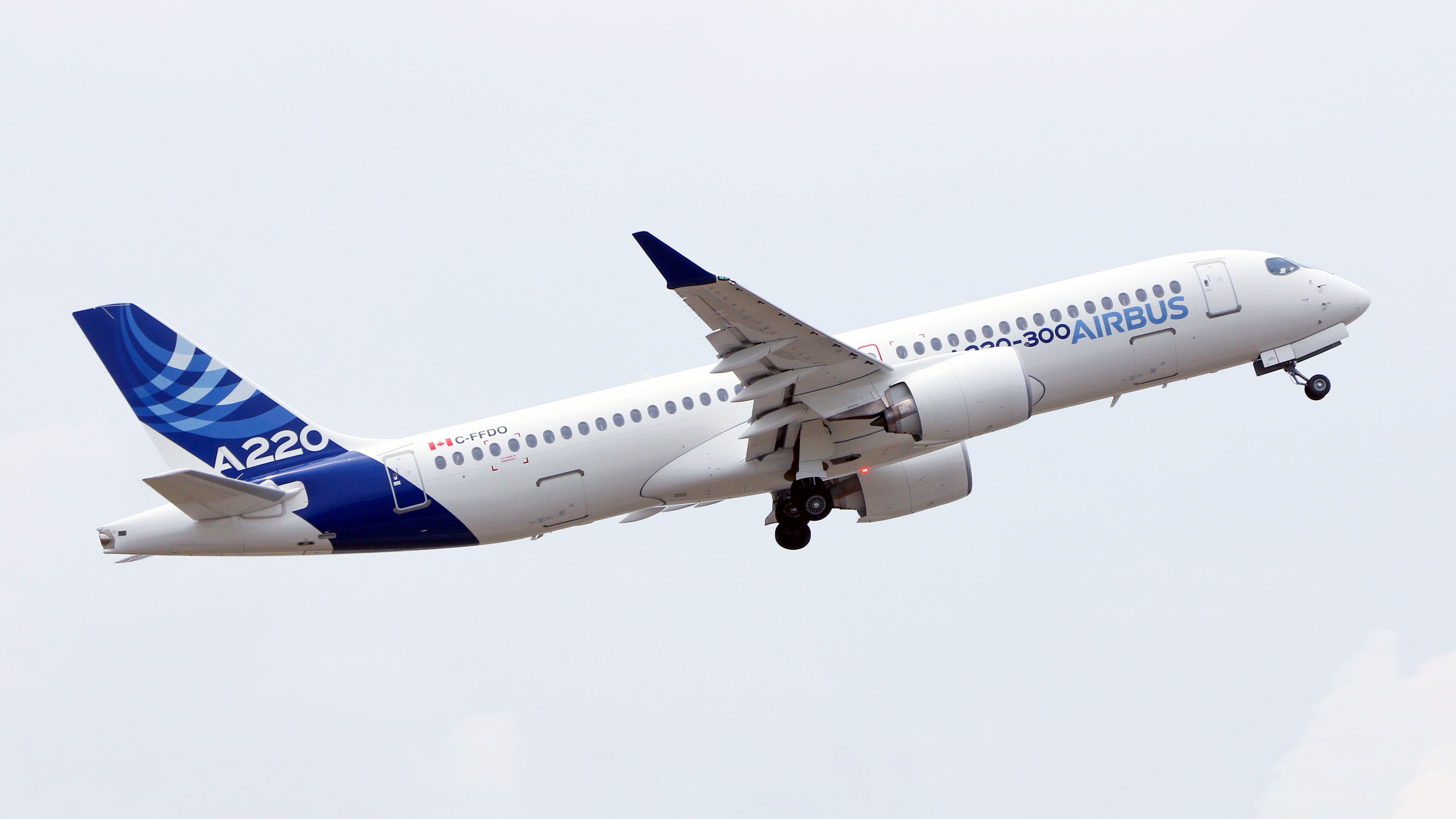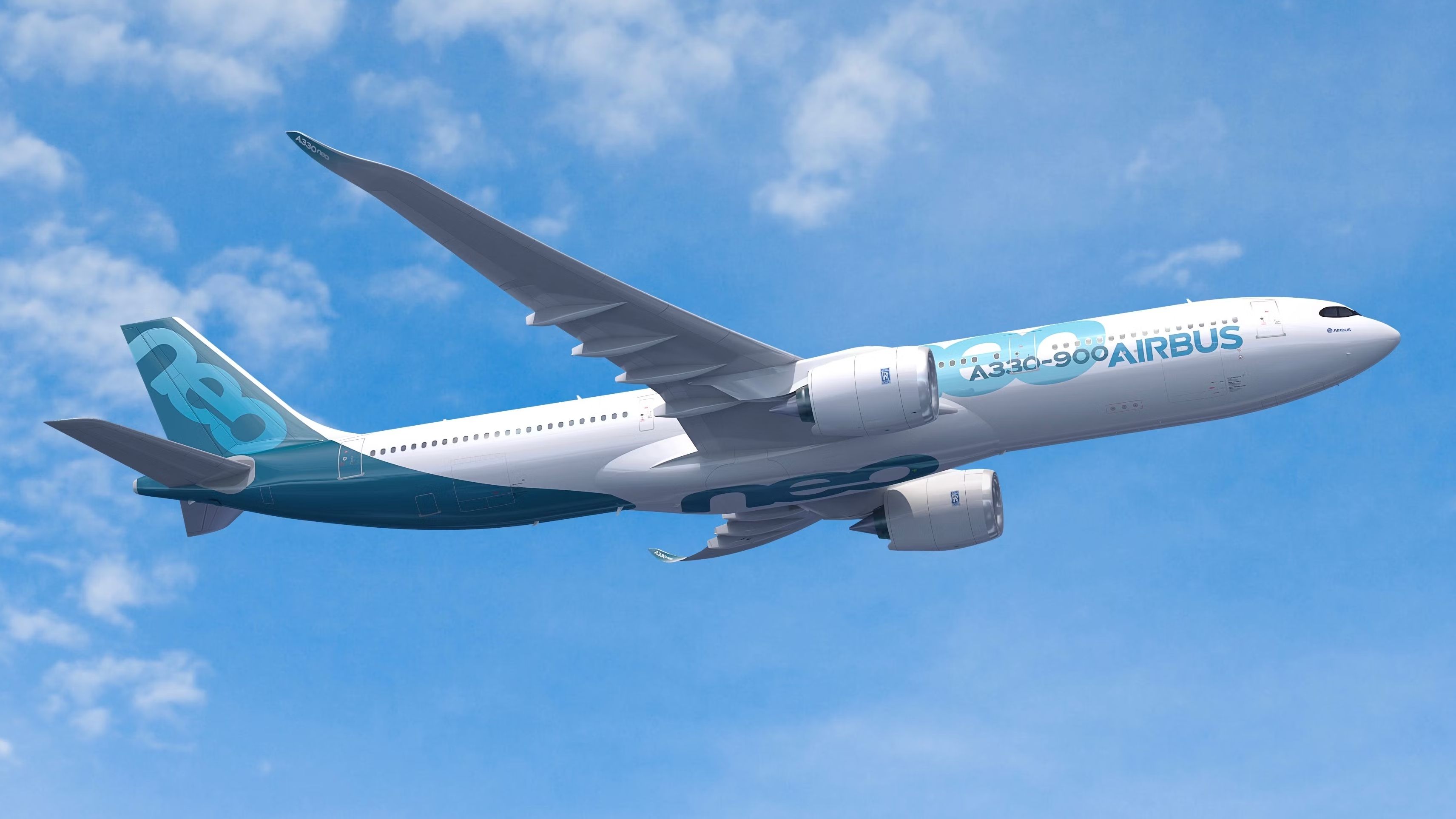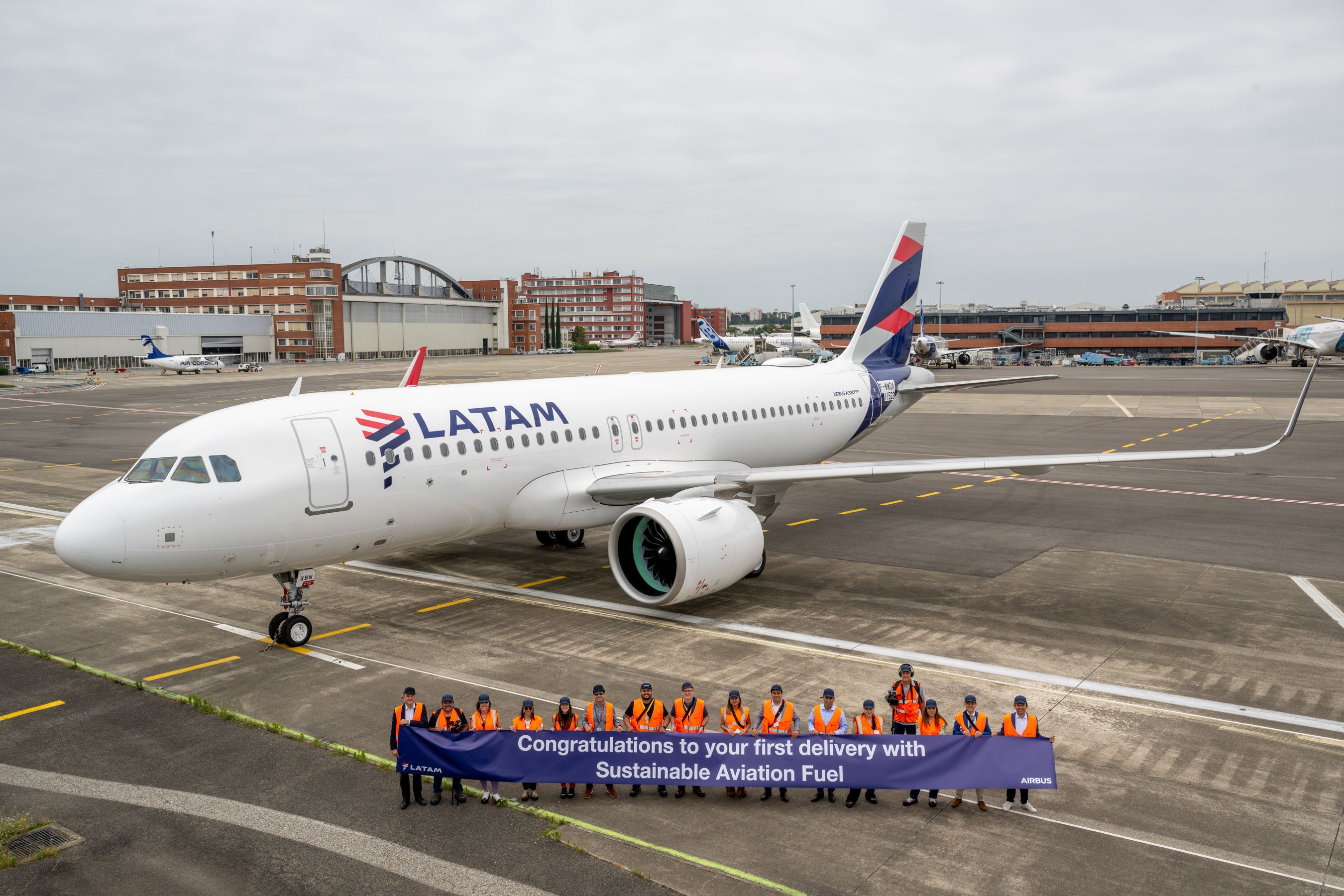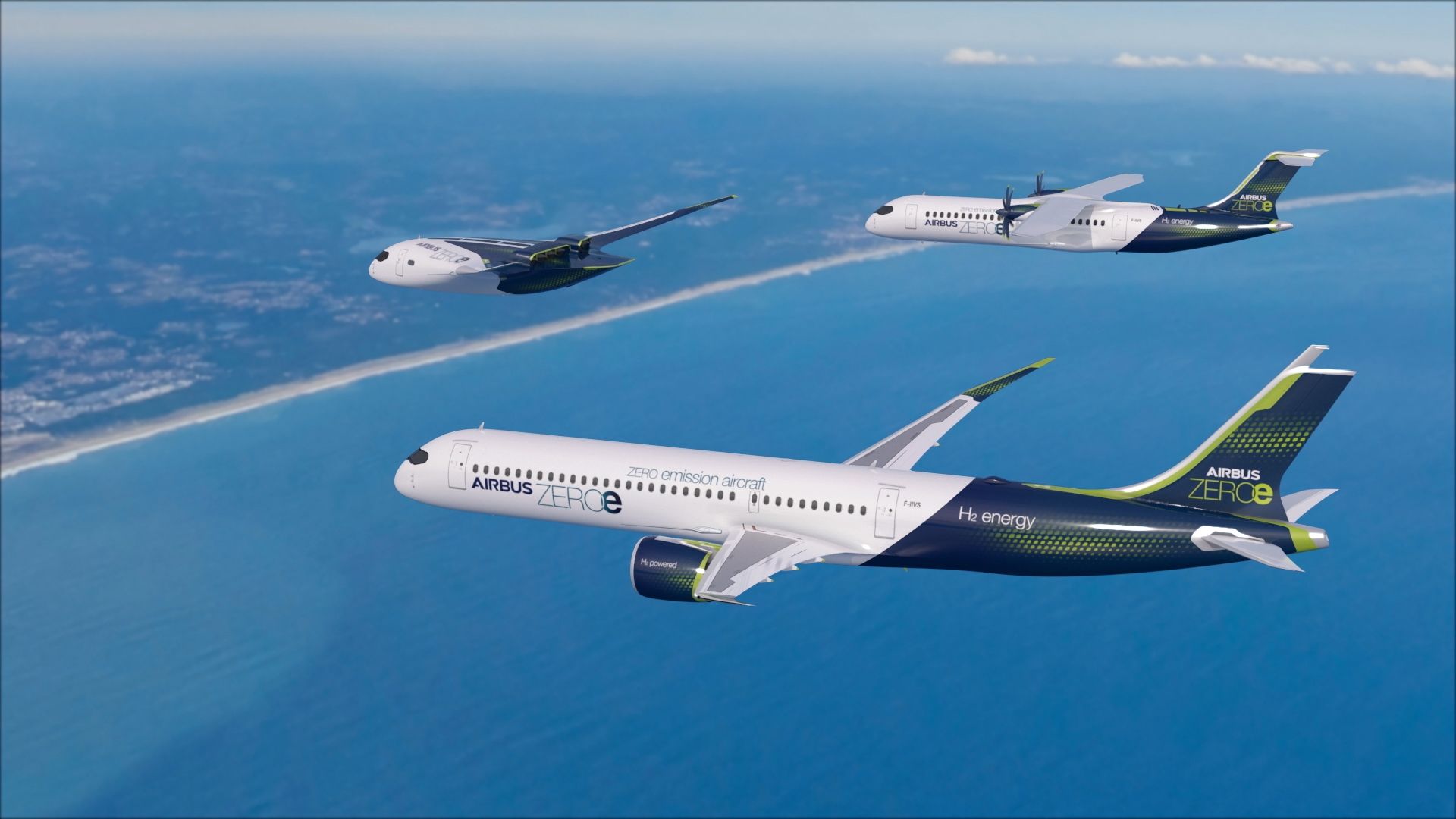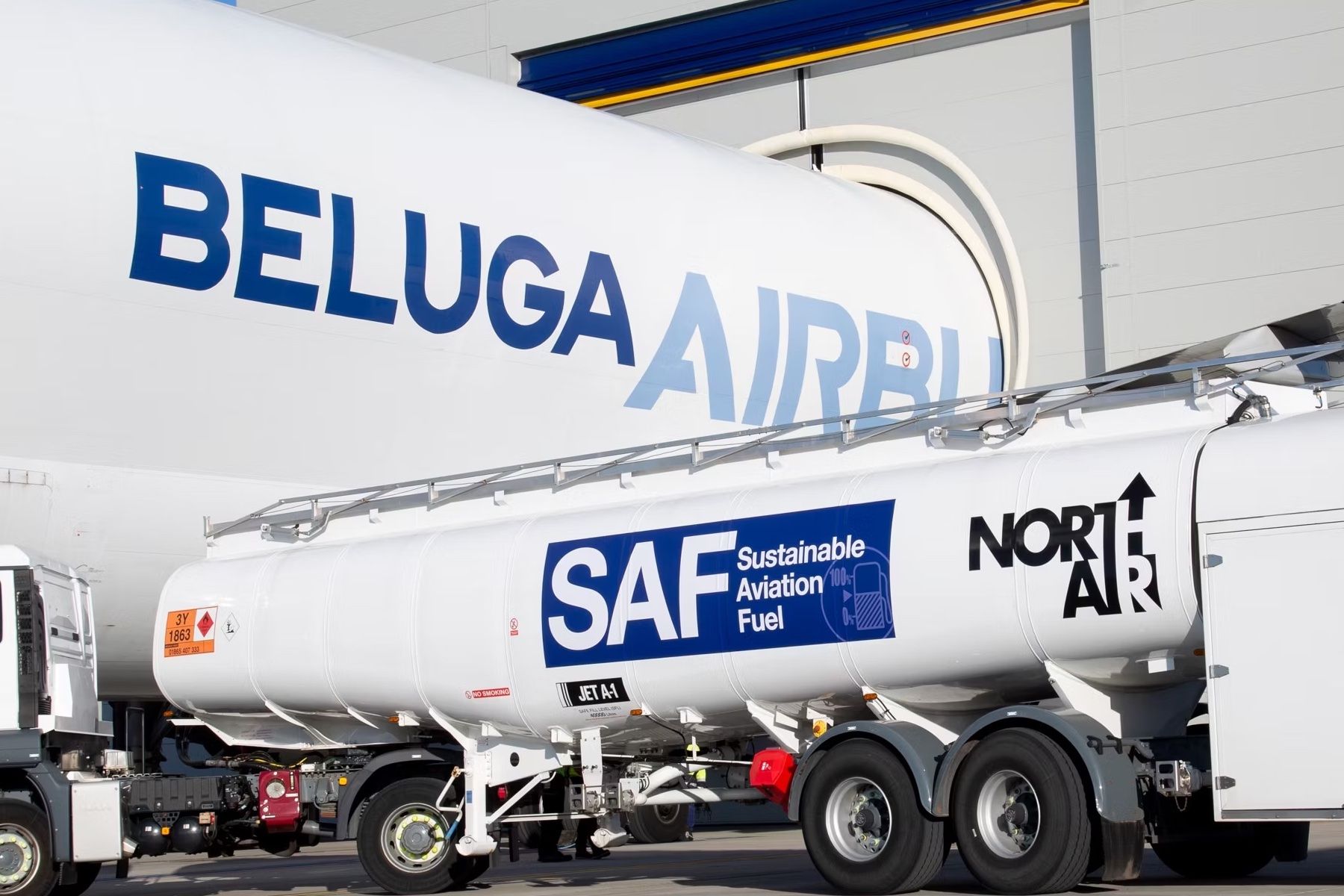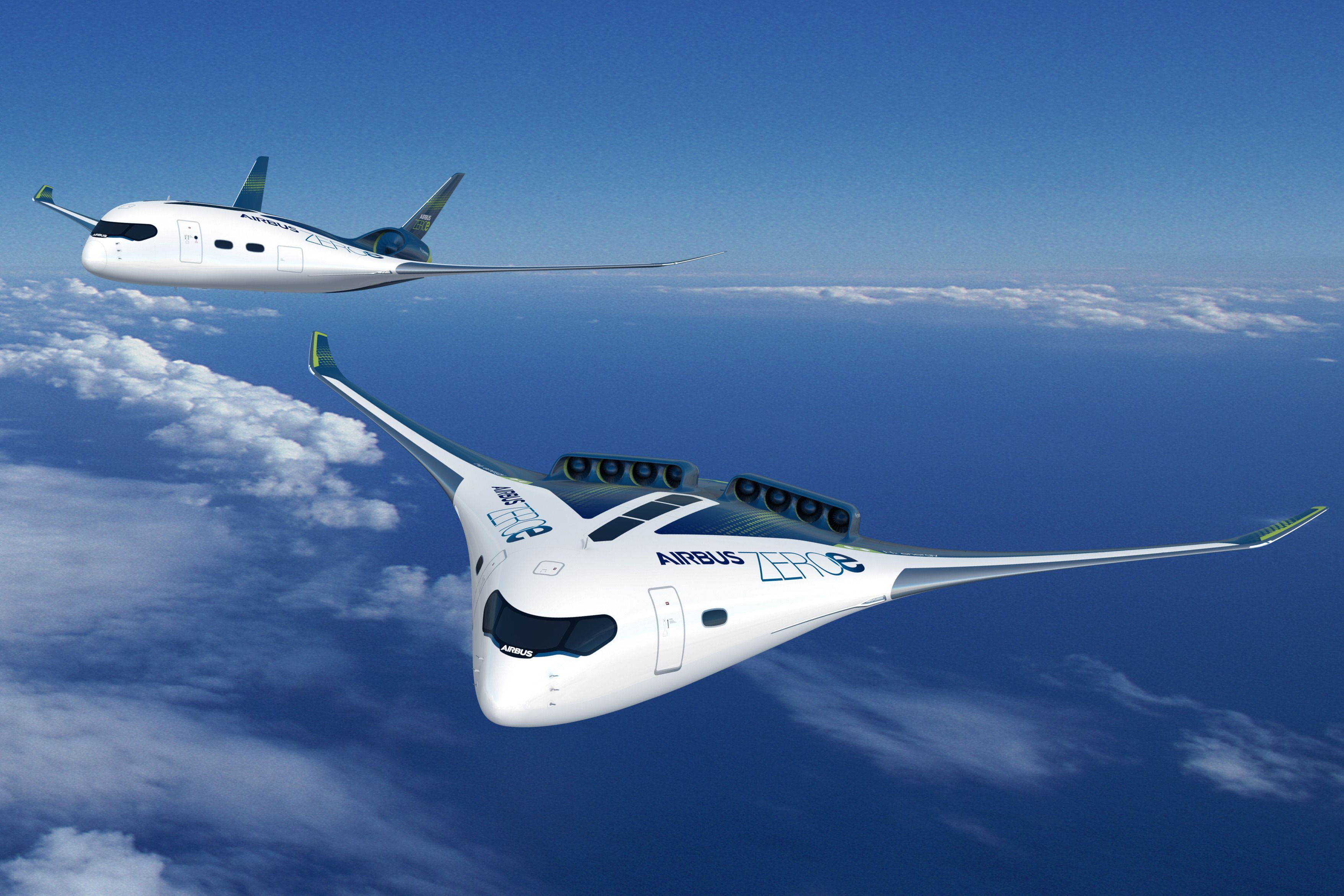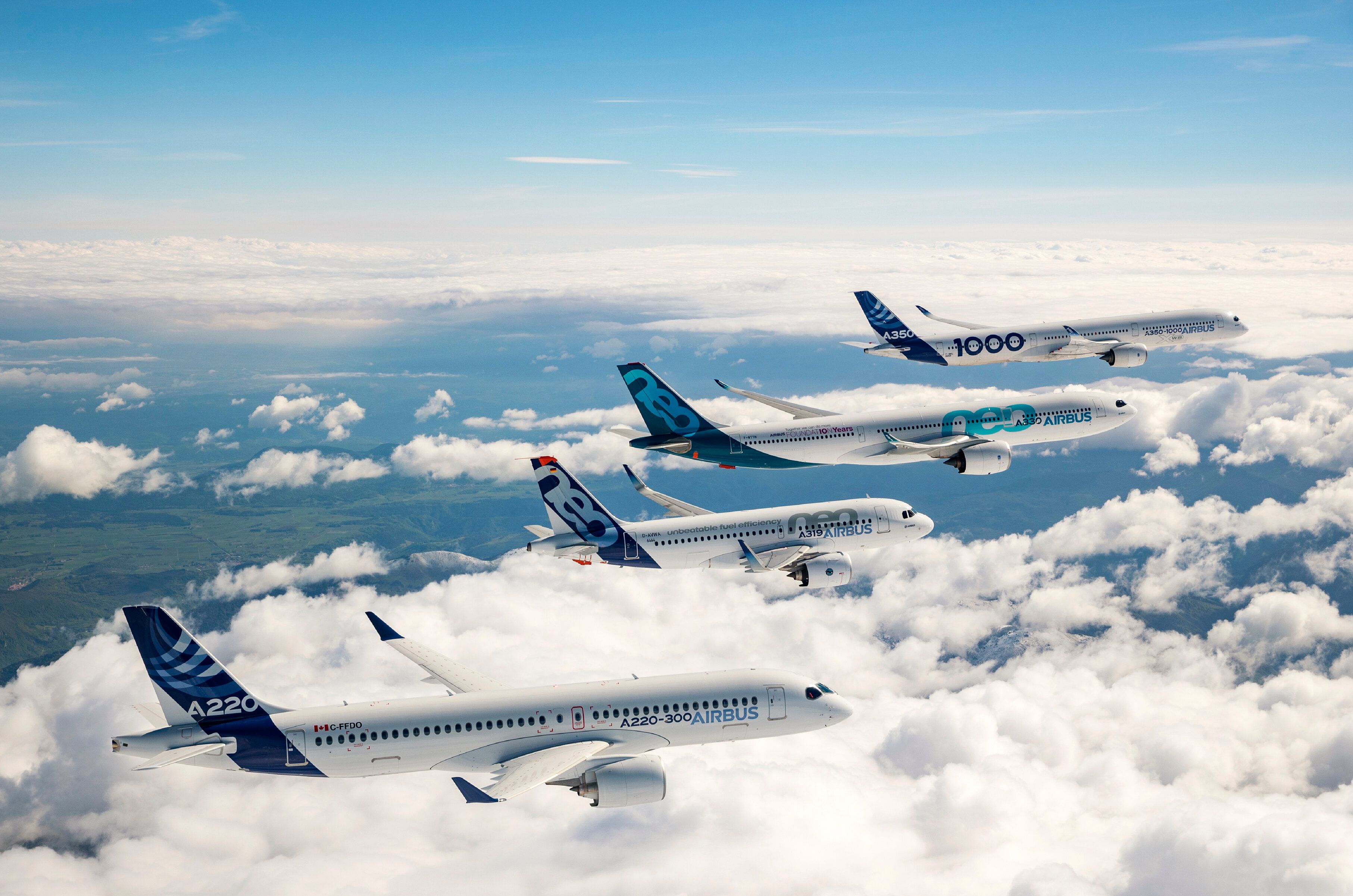Summary
- Airbus aims for net-zero emissions by 2050
- New-generation aircraft key in emissions reduction
- Airbus leads in sustainability with SAF, disruptive tech & noise reduction efforts
As the world faces the escalating impacts of climate change, the aviation industry is under increasing pressure to reduce its carbon footprint. Airbus, a major industry player, has set a target to achieve net-zero carbon emissions by 2050.
Simple Flying recently visited the Airbus headquarters in Toulouse, France, to see Malaysia Airlines’ first Airbus A330neo in final assembly. There, we heard from Camille Sagues, Airbus’ Head of Environment and Sustainability Marketing, who spoke about the manufacturer’s sustainability strategy – and it is no small task.
Airbus’ role in leading the way towards net-zero
In 2022, aviation accounted for 2% of global energy-related carbon emissions, according to the International Energy Agency. Pre-COVID, this figure was around 2.4%.
Photo: GingChen | Shutterstock
Airbus is one of the two largest commercial aircraft manufacturers in the world, and with the honor of being a market leader comes the expectation of setting a good example. With mounting global pressure to decarbonize the aviation industry, Airbus has set its sights on achieving net-zero carbon emissions by 2050.
According to Sagues:
“Airbus’ ambition of achieving net-zero by 2050 is in line with the International Air Transport Association (IATA)’s Fly Net Zero initiative and the International Civil Aviation Organization (ICAO)’s long-term global aspirational goal (LTAG) for international aviation of net-zero carbon emissions by 2050.”
Undoubtedly, achieving net-zero in less than three decades is not an easy feat. Sagues revealed that Airbus invests approximately €2 ($2.14) billion a year into the research and development of sustainable innovations, with a strategic decarbonization approach that involves five pillars:
- Latest generation aircraft
- Operations and infrastructures
- Sustainable Aviation Fuels
- Disruptive technologies
- Carbon offsetting and removal
New-generation aircraft play a major role
As reported by the BBC, newer aircraft tend to be more efficient than older models, and therefore, generate less emissions. Sagues notes that fleet replacement could yield up to a 25% reduction in carbon emissions.
Photo: Airbus
Shockingly, only 28% of today’s global fleet are new-generation aircraft. For this reason, Airbus is banking on its latest generation aircraft, like the A330neo and upcoming A350F freighter, to be the future of aviation.
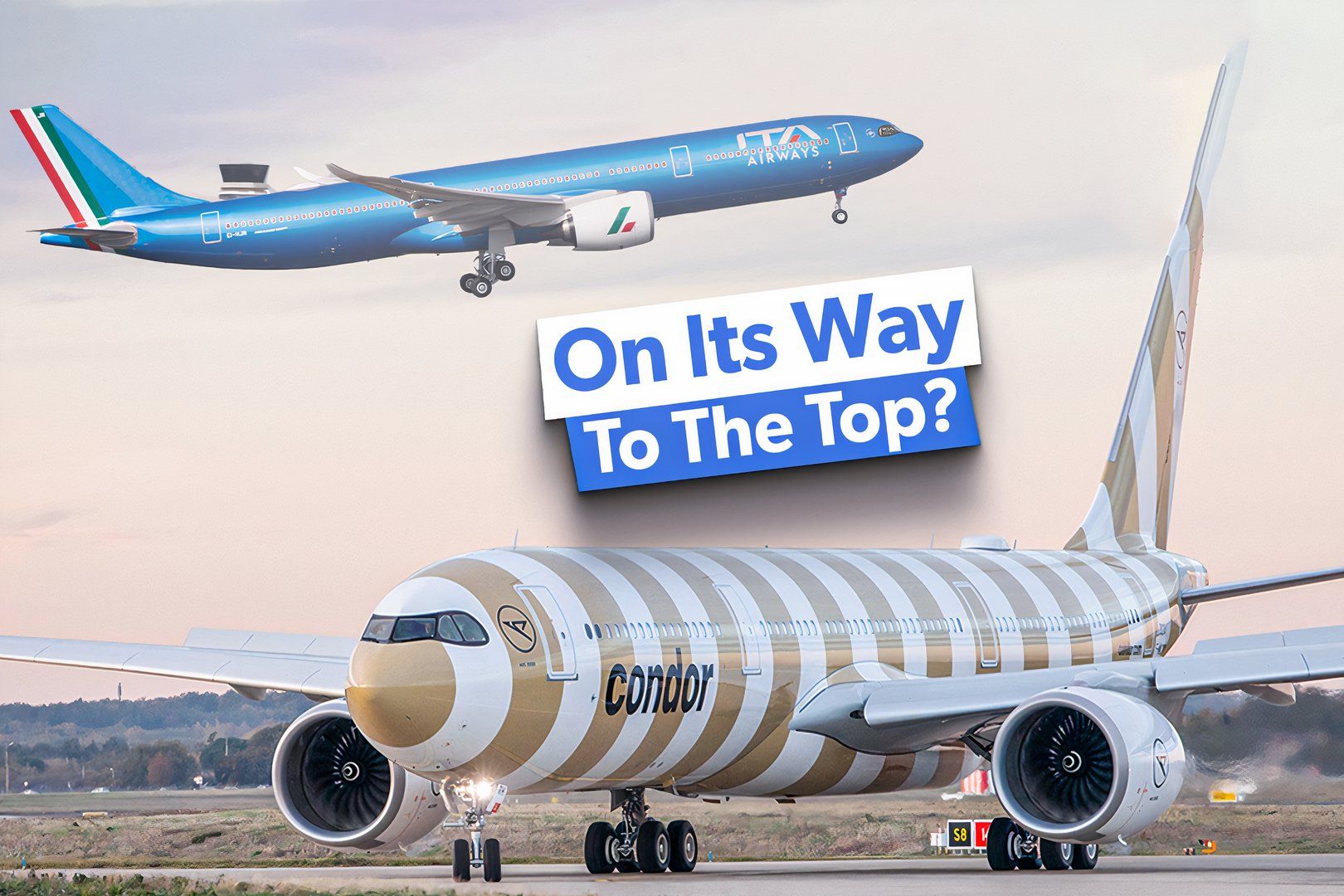
Related
Could The Airbus A330neo Become The World’s Most Popular Airliner?
Airbus Widebody Marketing Director Rodrigo Lezama talks about the A330neo’s potential.
The A330neo is the first large airliner to be certified to ICAO’s carbon emissions standard, reflecting the manufacturer’s proactive approach to complying with the latest environmental benchmarks. The jet boasts a new high-span wing featuring new winglets, as well as new engines that contribute to reduced emissions.
Sustainable Aviation Fuel (SAF) compatibility
One of the most significant strides Airbus is making towards sustainability is the integration of Sustainable Aviation Fuel (SAF) compatibility across its entire range of commercial airliners.
Photo: LATAM Airlines Group
SAF has become somewhat of a buzzword in recent years – and for good reason. Derived from renewable sources such as waste oils, agricultural residues, and even non-food crops, the usage of SAF has the potential to reduce lifecycle carbon emissions by an average of 80% compared to traditional aviation fuel.
The widespread adoption of SAF plays a crucial role in lowering the carbon emissions of commercial flights. According to Sagues, industrial uptake is required to increase the availability of SAF. She added:
“Without any aircraft modifications, all Airbus aircraft are already compatible to operate on up to 50% SAF blends, with no impact on operations, maintenance, or safety. We are now targeting 100% capability by the end of the decade.”
Disruptive technologies: Airbus ZEROe
New-generation aircraft is not all that Airbus is working on. The manufacturer is pioneering the development of hydrogen-powered aircraft under its ZEROe initiative, with an ambition to bring this futuristic aircraft to the market by 2035.
Photo: Airbus
Hydrogen is considered one of the most promising clean energy sources for the future of aviation. Unlike traditional jet fuel, hydrogen combustion produces zero carbon emissions, with water vapor being the primary byproduct.
Airbus has unveiled three concepts for hydrogen-powered aircraft, each representing a different approach to achieving zero-emission flight. These concepts include a turbofan design, a turboprop design, and a blended-wing body design.
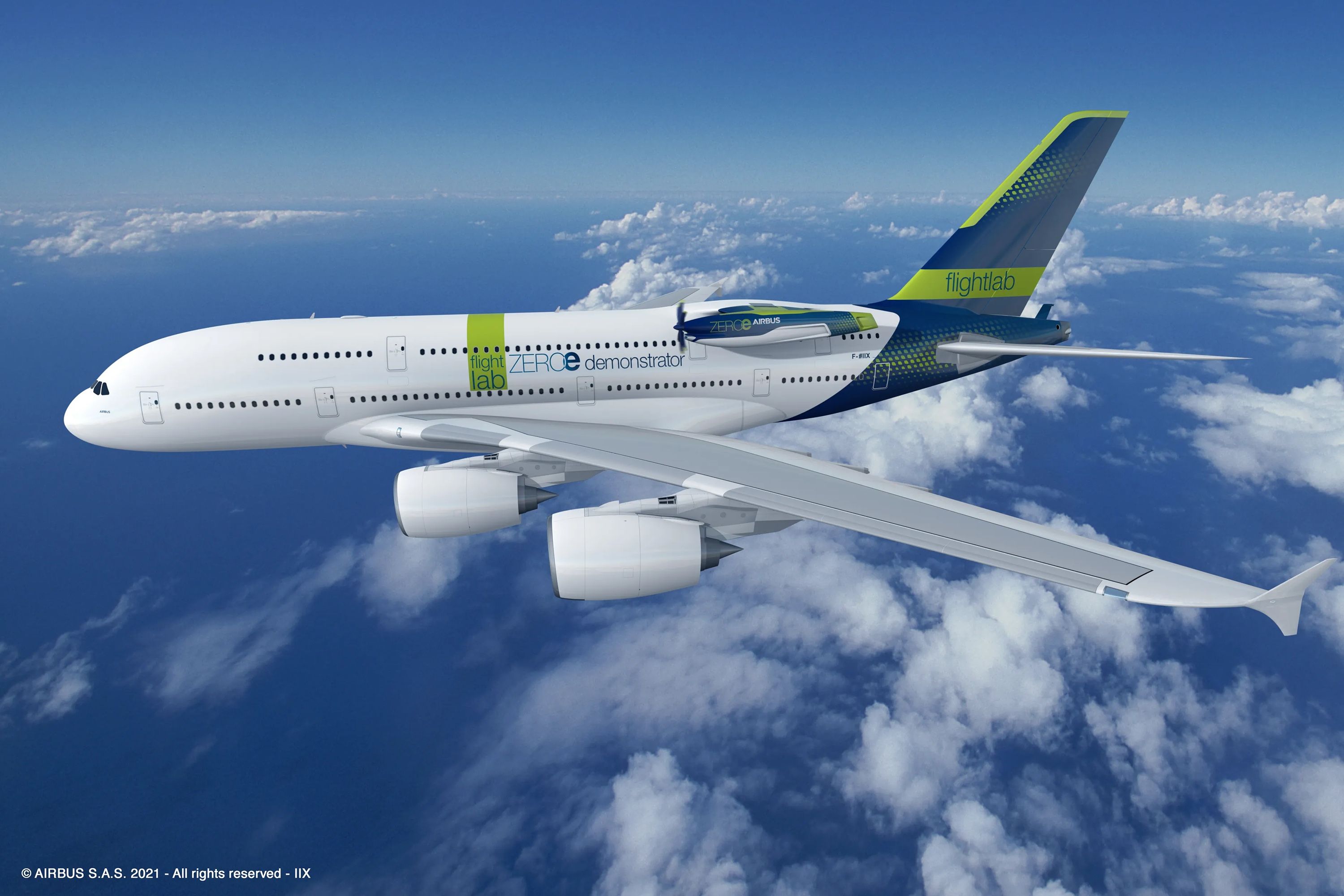
Related
Airbus Plans A380 Hydrogen Flights In 2026 After Successful Power On Of ZEROe Engine
The ZEROe demonstrator is also the first-ever A380, also known as MSN001, produced.
Each model is designed to leverage hydrogen as a primary power source, offering a glimpse into the future of sustainable aviation. Interestingly, Sagues shared that Airbus is using the A380 Superjumbo as a testbed for its hydrogen-powered technologies.
In addition to focusing on fuel efficiency and emissions, Airbus is also addressing the issue of noise pollution. Its new-generation aircraft are designed with advanced aerodynamics and more efficient engines that significantly reduce noise levels.
For instance, the A330-900 boasts a 45% smaller noise footprint than its predecessor, the A330-300. All in all, Airbus attests that aircraft noise has been reduced by 75% since the dawn of the Jet Age.
Reducing the noise footprint is not just about improving passenger comfort; it’s also about lessening the environmental impact on communities living near airports. Quieter aircraft mean fewer noise disturbances and a better quality of life for those affected by airport operations.
Looking within: scope 1 and 2 emissions
Besides providing avenues for its customers to decarbonize their operations, Airbus is also working to reduce its own environmental impact. In 2023, more than 10% of its operations (including test flights and flying the Beluga) employed SAF – with a view to increasing the proportion to 30% by 2030.
Photo: Airbus
Further, the manufacturer has set an ambitious scope 1 and 2 emissions (direct greenhouse gas emissions from their own operations and indirect emissions from the consumption of purchased energy) target of a 63% reduction by 2030, compared to 2015 levels.

Related
Airbus Beluga Transport: Everything You Need To Know
The freighter for every need, Airbus Beluga Transport is dedicated to transporting oversized cargo efficiently.
Airbus is also increasingly acquiring its electricity from renewable sources. According to Sagues, the Airbus neo production lines are powered by biomass boilers. A biomass boiler is a heating system that burns organic materials, such as wood pellets or agricultural waste, to produce heat and energy in an environmentally friendly manner.
Conclusion
Airbus is at the forefront of the aviation industry’s efforts to achieve net-zero carbon emissions by 2050. Through the development of new-generation aircraft, the exploration of disruptive hydrogen-powered technologies, and the reduction of its own environmental impact, Airbus is demonstrating its commitment to a sustainable future.
Photo: Airbus
The journey towards net-zero is complex and requires a multifaceted approach. By investing in innovative technologies and collaborating with industry partners, Airbus is not only reducing its carbon footprint but also setting a new standard for environmental responsibility in aviation.
As these initiatives continue to evolve, Airbus’ efforts will play a critical role in transforming the aviation industry and contributing to global climate goals.

